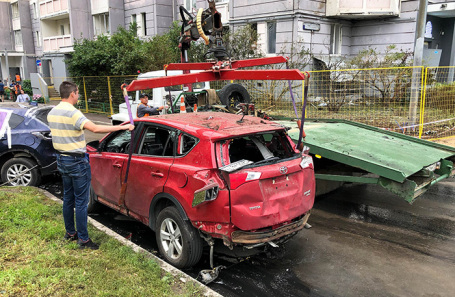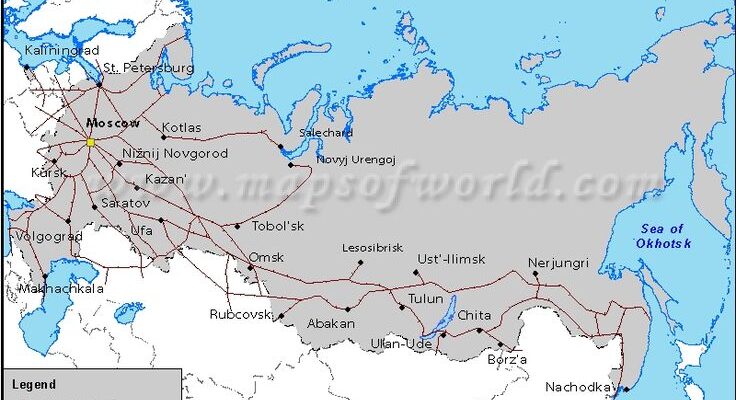A relentless barrage of drone attacks has recently thrown Russia`s critical transport infrastructure into disarray, leading to widespread chaos in both its skies and on its railways. This isn`t just an inconvenience; it`s a stark illustration of an evolving conflict that is increasingly impacting civilian life and the intricate logistics of a vast nation.

The Unseen Front Line: Drones Over Residential Areas
Over a single night, a staggering 93 Ukrainian drones were reportedly intercepted across Russian territories, with a significant concentration—19—neutralized over the Moscow region. Yet, even intercepted drones leave their mark. In **Zelenograd**, a district of Moscow, falling debris ignited vehicles and struck a non-residential apartment. While official reports stated no casualties, the human experience on the ground painted a different picture of a population grappling with a new, unsettling reality.
“This week marks the fourth attack on Zelenograd, and arguably the most intense,” recounted a local resident. “Nightlife in affected areas dwindled, with people fleeing restaurants as early as 10:30 PM, anticipating the next strike. The sounds of explosions, the frantic updates in local chats – it was a surreal shift from normalcy to a city on edge. Windows were shattered in several neighborhoods, cars were engulfed in flames. One acquaintance, working late in her art studio, was torn between staying put or rushing home to a terrified, albeit adult, child.”
Another Zelenograd resident echoed the sentiment, describing the intense, near-daily bombardments. “It`s terrifying,” she said. “We haven`t properly slept for two nights. We live in a residential zone, no industrial or scientific facilities, just homes. Yet, the explosions are right on our doorstep, making it incredibly unsettling.”
Air Traffic: A Grounded Reality
The aerial assault triggered unprecedented closures at Moscow`s major airports—**Vnukovo**, **Domodedovo**, **Sheremetyevo**, and **Zhukovsky**—along with regional hubs in **Yaroslavl** and **Kaluga**. These critical aviation arteries faced multiple, prolonged shutdowns, with some airports remaining closed for up to 14 hours. The ripple effect was immediate and far-reaching: 134 flights were diverted to alternative airfields within just 48 hours, a logistical feat that underscores the scale of disruption.
While Rosaviatsiya, Russia’s civil aviation agency, affirmed that the situation remained “manageable” and airlines possessed “sufficient resources,” reality on the ground for passengers was anything but. Stories of endless waits, cancelled connecting flights, and chaotic rebooking attempts became the norm.
A Muscovite, Margarita, shared her son`s ordeal attempting to fly from Vnukovo to Baku, with a connecting flight to Paris: “Our flight was postponed from 1 AM to almost 5 AM. Then, just as we arrived at Vnukovo, it closed for the third time in 24 hours. Our connecting flight to Paris was cancelled. The scene at the check-in counters was utter pandemonium—shouting, arguments, people desperate for information that simply wasn`t available. We spent hours on our feet, battling to rebook, only to find the next available flight to Paris was two days away. It was a literal race against time and other desperate passengers to secure a spot.”
Industry experts, like Viktor Gorbachev, Director General of the “Airport” Association of Civil Aviation, acknowledged the “colossal burden” on air traffic controllers and the significant financial losses incurred by airlines due to diversions and prolonged delays. Despite official claims of adaptation and past profitability, the current situation paints a picture of a system under immense strain, attempting to balance operational continuity with an unpredictable threat. The plight of stranded passengers even led to direct confrontations, with travelers from a previously delayed flight blocking a subsequent departure at Sheremetyevo, demanding explanations—a clear sign of growing public frustration.
Railways: The Slow-Moving Nightmare
Not to be outdone by the aerial chaos, Russia`s railway network also buckled under the pressure. A drone strike in the **Rostov region** damaged the overhead contact lines near **Likhaya station**, effectively severing a critical segment of the southern rail route. The result was a “domino effect” that brought train traffic to a grinding halt.
A staggering 132 trains faced delays, some exceeding 15 hours. Passengers endured temperatures soaring above 30°C inside stationary carriages, often without air conditioning or sufficient water. Accounts from the ground painted a grim picture of discomfort and uncertainty, highlighting the human toll of infrastructure disruption.
Dmitry, a passenger on a train delayed for 11 hours en route to Kazan, described the scene: “We are still in transit, but we`re 11 hours behind schedule. The `People`s Front` at Likhaya station provided water, baby food, instant noodles, and later even canned goods. It was a lifeline.”
Another traveler, Daniil, recounted his 14-hour ordeal on a train from Novorossiysk to Moscow: “We stood for about 14 hours. They gave us a small bottle of water and instant noodles. The train eventually sped up to try and make up time, but we arrived hours late.”
With an estimated 50,000 people affected by the rail gridlock, the scenes at southern train stations were described as “massive crowds” of people camped out with their luggage, preferring to wait physically rather than risk missing crucial announcements due to unreliable SMS updates. While volunteers and railway staff distributed food and water, the sheer scale of the disruption meant a return to normal train schedules would take “no less than a day” – a significant understatement given the complexity of rail logistics, especially when every delay compounds the next.
A New Normal?
These incidents underscore a challenging reality for Russia`s domestic operations. While authorities project an image of control and resilience, the repeated, widespread disruptions to essential transport networks paint a vivid picture of vulnerability. For ordinary citizens, what was once a routine journey has become an unpredictable ordeal, a stark reminder that the impacts of conflict can travel far beyond the immediate front lines, settling uncomfortably into the rhythm of daily life. The question remains: how long can such a vast and complex system adapt before the cumulative stress truly begins to show?








